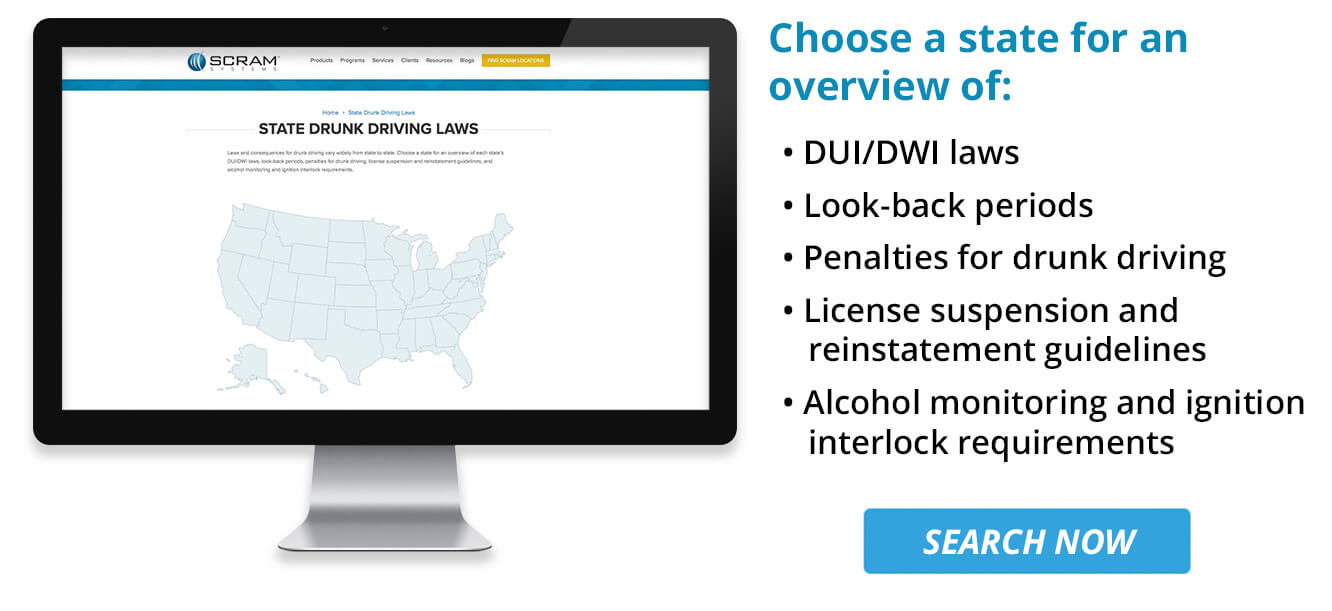Whether you live on the East Coast, West Coast, or somewhere in between, if you get behind the wheel after drinking you will face the consequences and may even end up with a DUI on your record.
But, DUI laws and penalties are not country-wide. In fact, many aspects of these laws vary greatly from state to state and may even be specific to a single state.
Utah, for example, is notoriously strict when it comes to DUI penalties. Three DUIs within ten years can result in a felony and a $5,000 minimum fine, while in North Dakota, it takes five DUIs for an individual to be charged with a felony with a $2,000 minimum fine.
Alcohol Monitoring Requirements Differ from State to State
Laws that allow or require the use of SCRAM Continuous Alcohol Monitoring® (SCRAM CAM®) also vary at the state level. For instance, those convicted of repeat offenses in North Dakota are required to participate in the 24/7 Sobriety Program for twelve months, which mandates participants being placed on SCRAM CAM or twice daily breath testing. In Colorado, SCRAM CAM can be used as a condition of bail for repeat offenses or for probationers. While in Utah, SCRAM CAM can be ordered by the court for anyone with a BAC of 0.16 or higher at the time of arrest.
Many states also suggest or mandate the use of ignition interlock devices for DUI convictions. For example, depending on the number of their DUI convictions, any DUI client in Tennessee is required to have an ignition interlock installed in their vehicle for varying amounts of time. Clients in Texas, however, are only eligible to use ignition interlock devices after a 30-day license suspension—unless they had a BAC of over 0.15 in which case the device is mandatory for one year.
Search State Drunk Driving Laws
Penalties such as alcohol monitoring requirements, minimum fines, license suspension, and even jail or prison time are state-specific. Use our state search tool to learn more about the DUI laws and penalties specific to your area.


